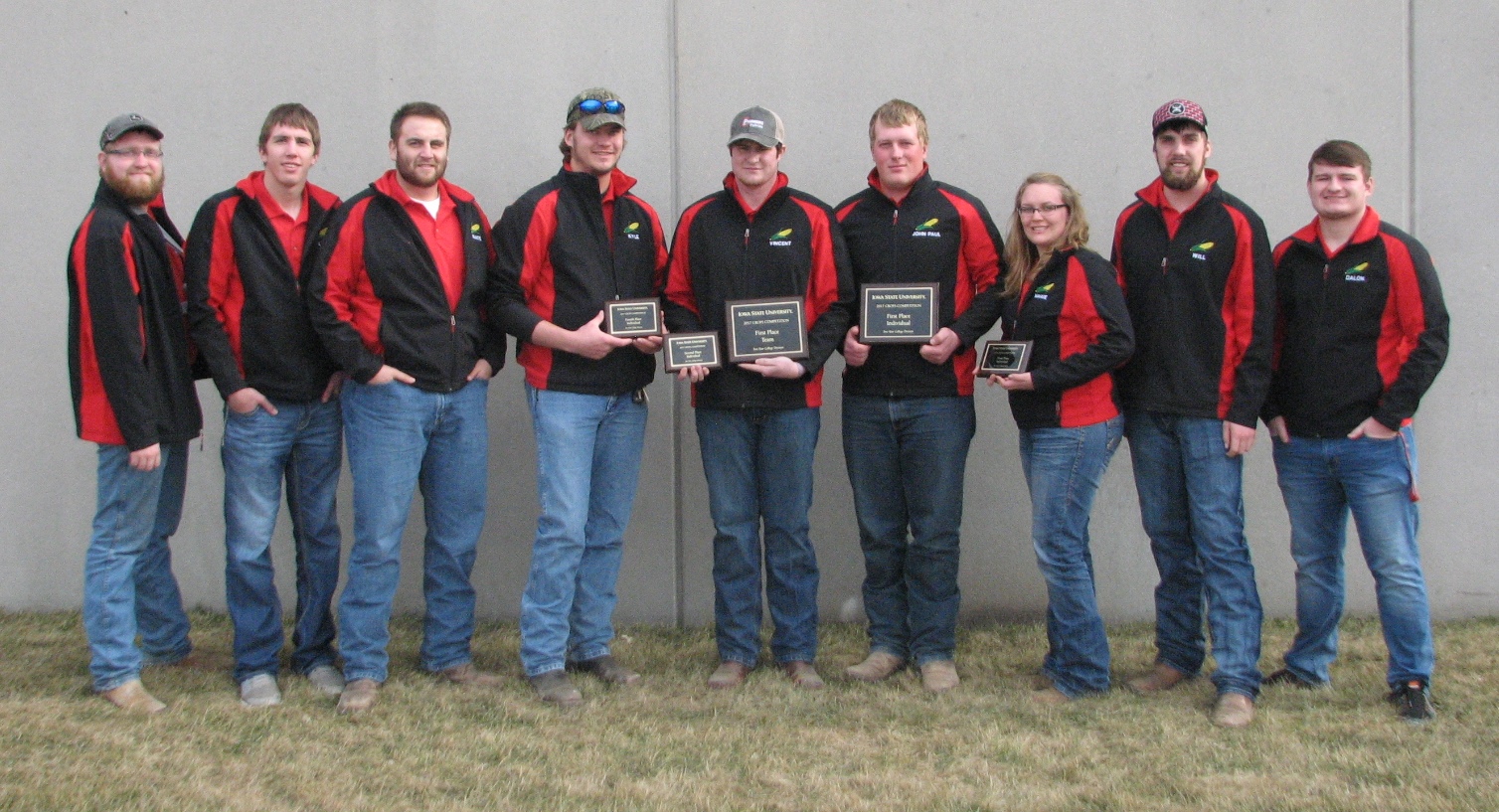NCTA Crops Team sweeps Iowa contest

February 12, 2017
By NCTA News Service
Ames, Iowa – Agronomy students from the Nebraska College of Technical Agriculture captured team and the top four individual rankings in collegiate crops judging this weekend.
A foursome of NCTA sophomores won the Iowa State University Crops Judging Contest on Saturday, topping four other schools from 2-year colleges. The Aggies are repeat champions, also taking first place team in 2016.
Six schools were in the 4-year division with nearly 100 students competing at Ames, Iowa, said Brad Ramsdale, NCTA agronomy professor and crops judging coach.
“This is a first for our crops judging team to sweep the top four individual placings,” Ramsdale said. “I am very proud of the efforts these students put into practices and all of the preparation that goes into a daylong contest.”
Team members were: First place, John Paul Kain, McCook; Second, Vincent Jones, Kirwin, Kan.; Third, Maggie Brunmeier, Bayard; and Fourth, Kyle Krantz, Alliance.
Four students per school are eligible for awards, with more students participating to gain experience in the judging scenario which complements their academic program at NCTA.
Also participating was Brent Thomas, Alliance; Will Kusant, Comstock; Dalon Koubek, North Platte; Lee Jespersen, Hemingford; and Nate Montanez, Grand Island.
Individual students compete in four categories, with 60 minutes for completing each section.
“It is a rigorous contest with about four hours of evaluation and knowledge exams,” said Ramsdale, who is guiding students in his seventh year of crops judging competitions.
For the first time, NCTA will host one of these collegiate contests at Curtis on March 11. Then, the national contest is April 8 in Manhattan, Kan., and will be hosted by Kansas State University.
Event categories include 1) a comprehensive agronomic exam of 75 multiple-choice questions about agronomy, 2) a math practical encompassing all possible mathematical problems in agronomy, 3) a lab practical which includes 75 specimens that might include insect, disease and equipment identification; crop growth staging; pesticide labels; nutrient deficiency symptoms, fertilizer samples, and more, and lastly, 4) the plant and seed identification of 75 specimens of crop and weed plants and seeds (out of a possible 150 species).
For information about NCTA agronomy courses, see ncta.unl.edu, call 1-800-3CURTIS or contact Dr. Ramsdale at bramsdale2@unl.edu.
Download a PDF of this press release